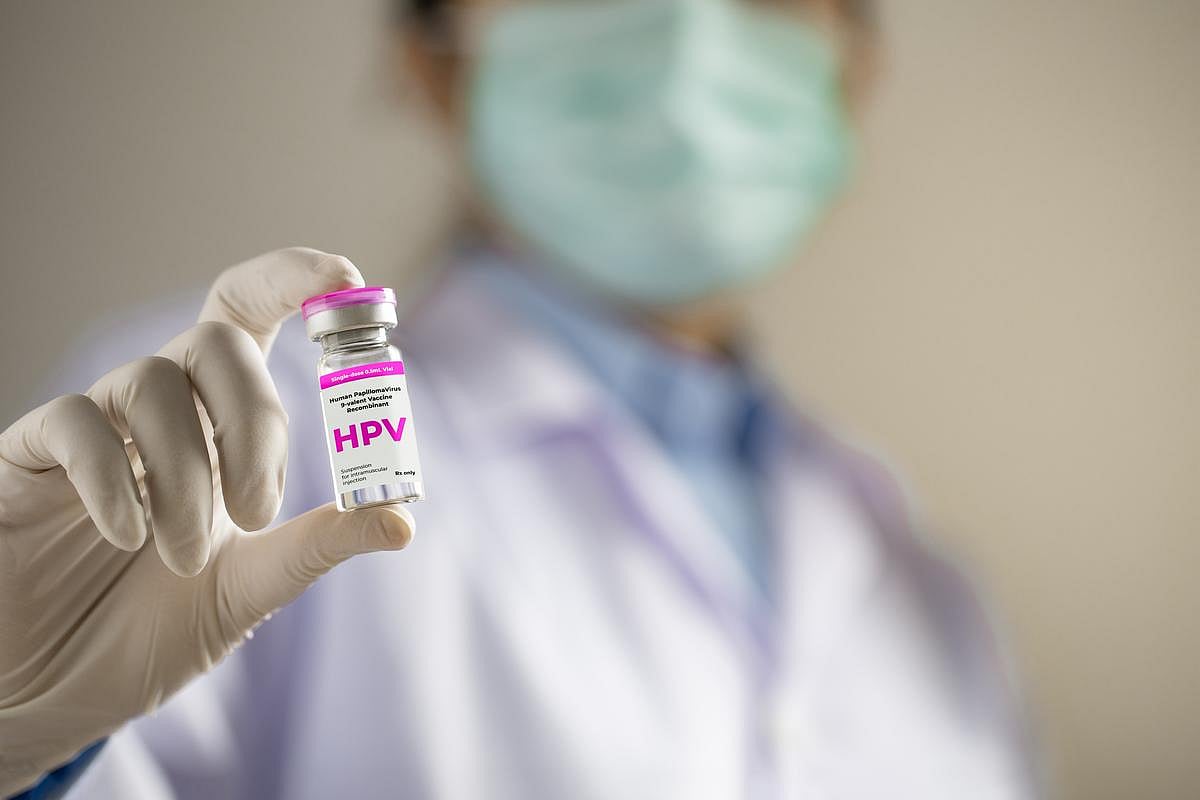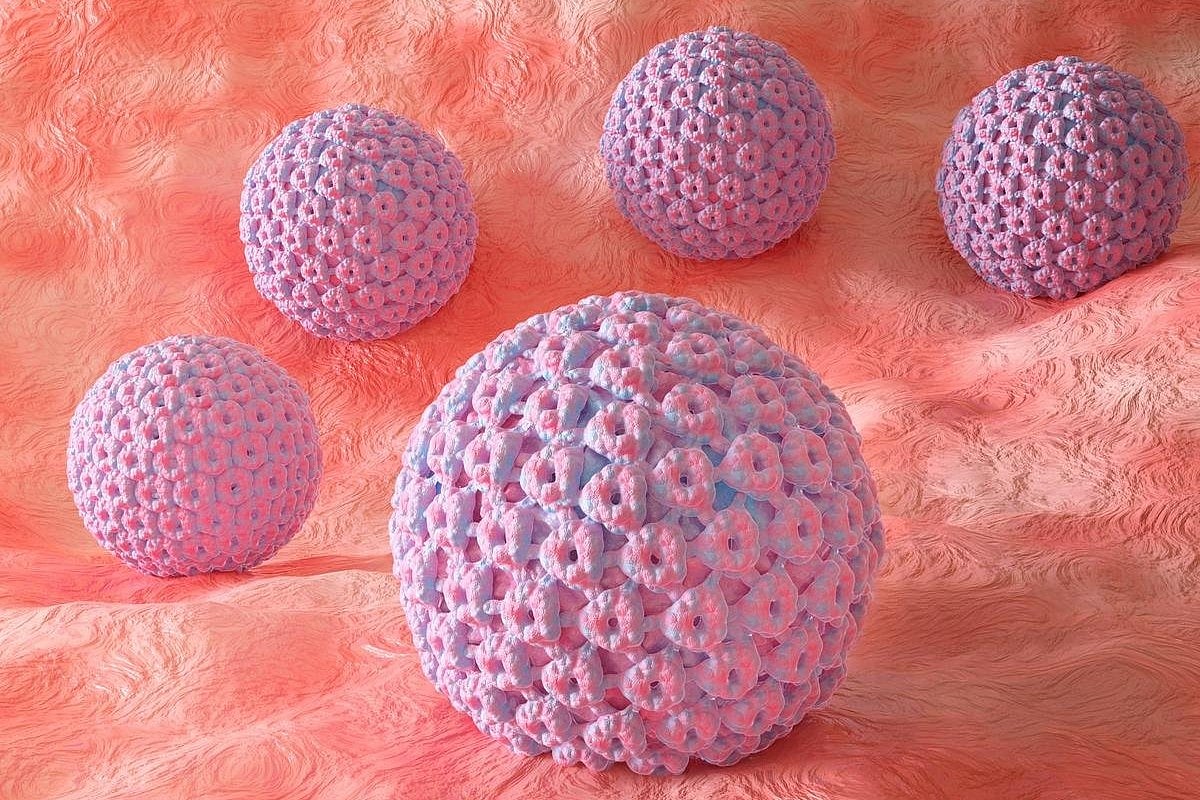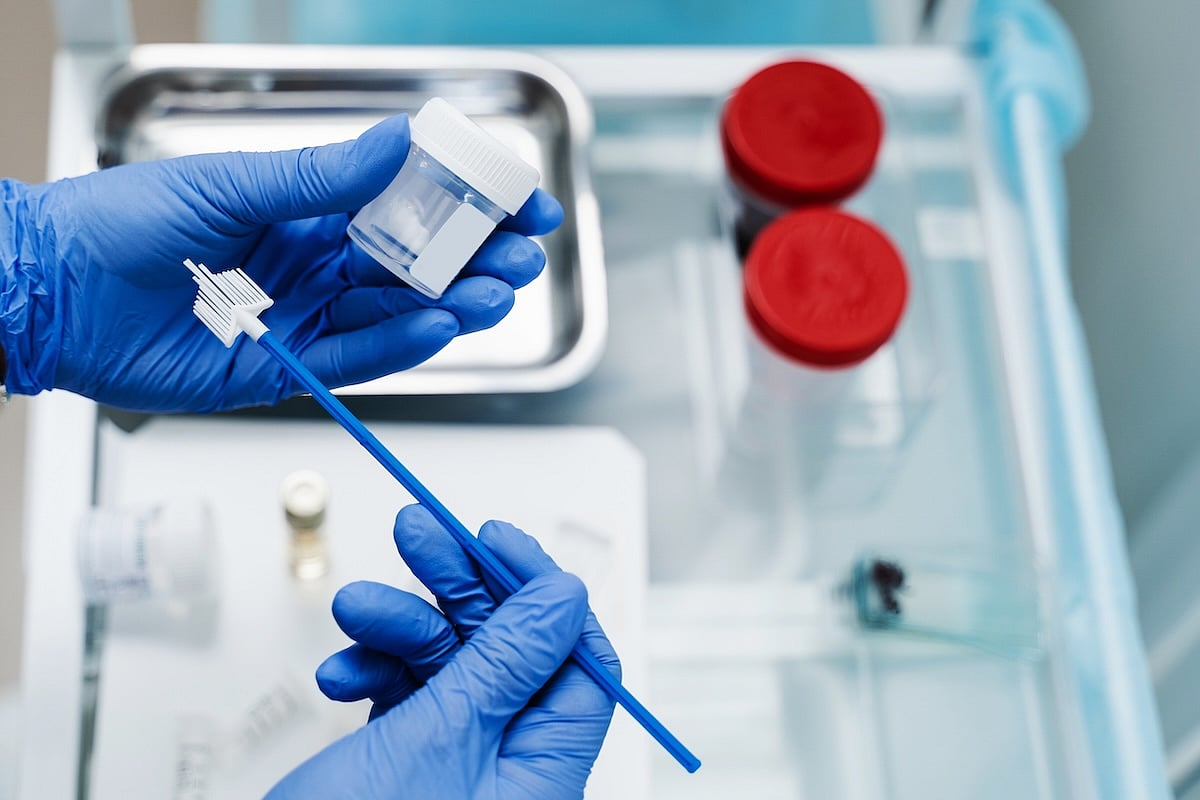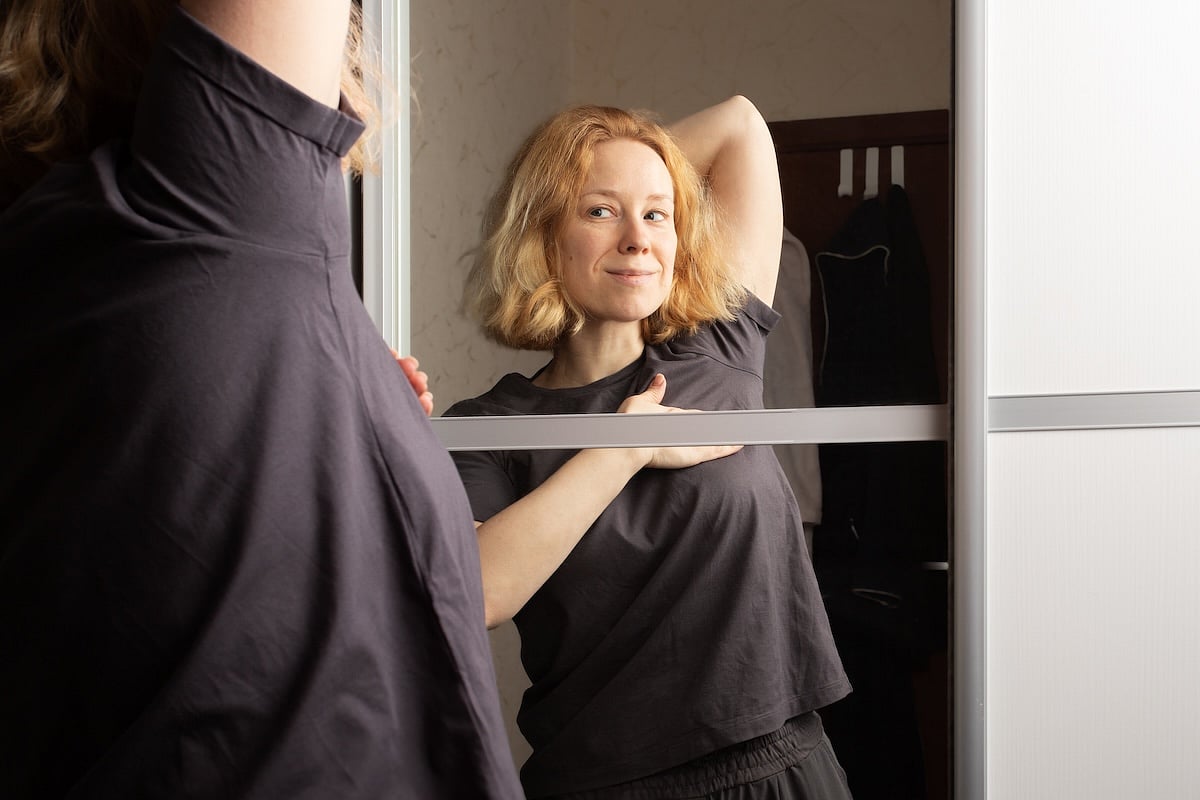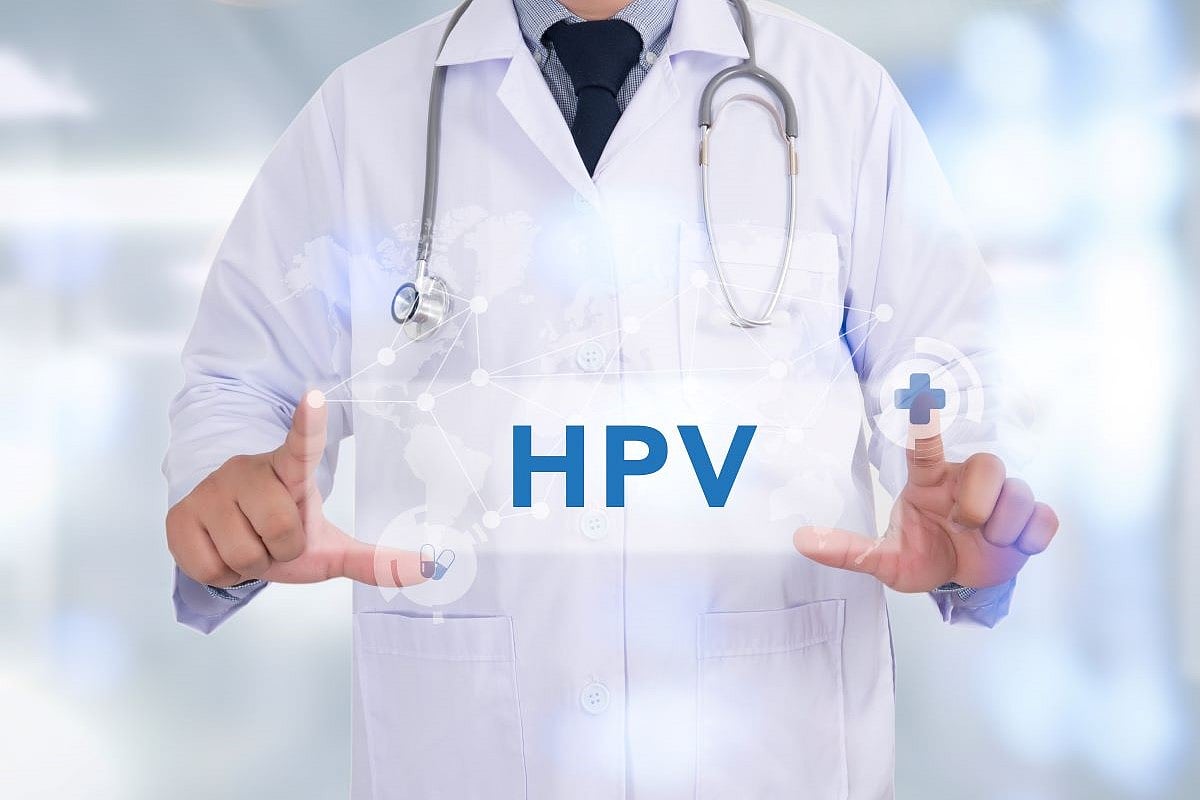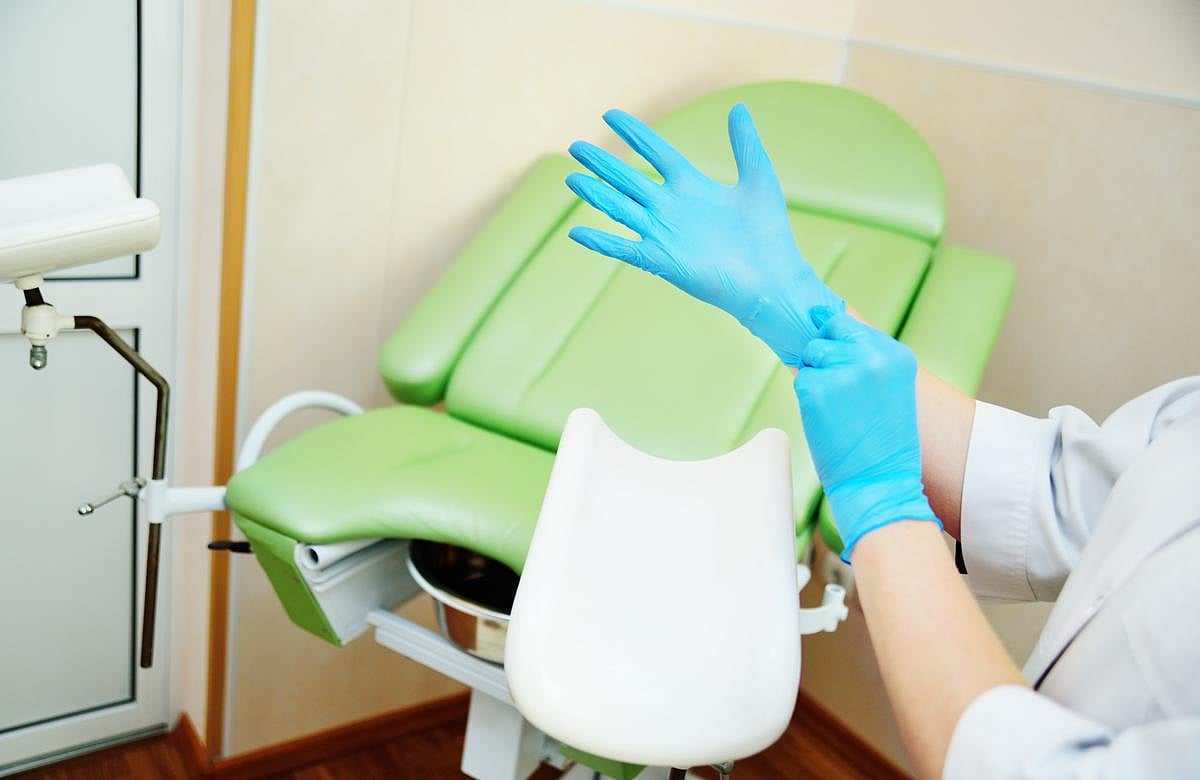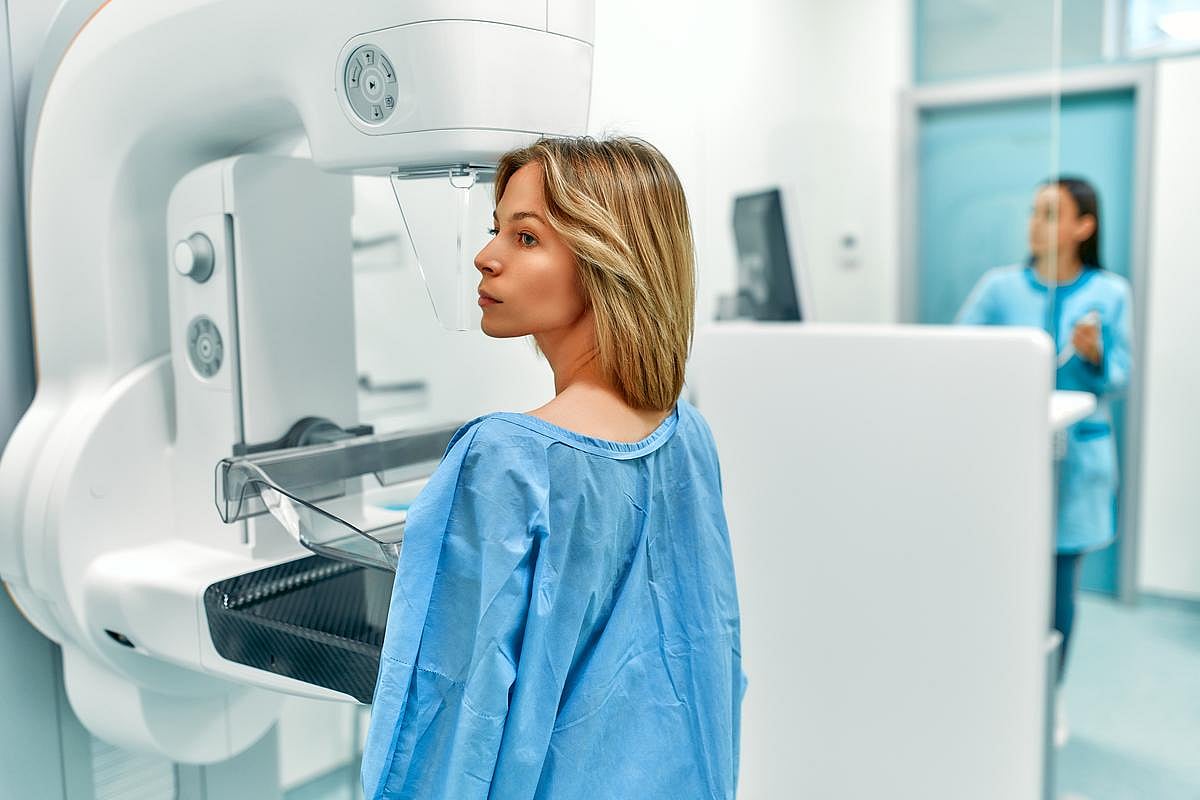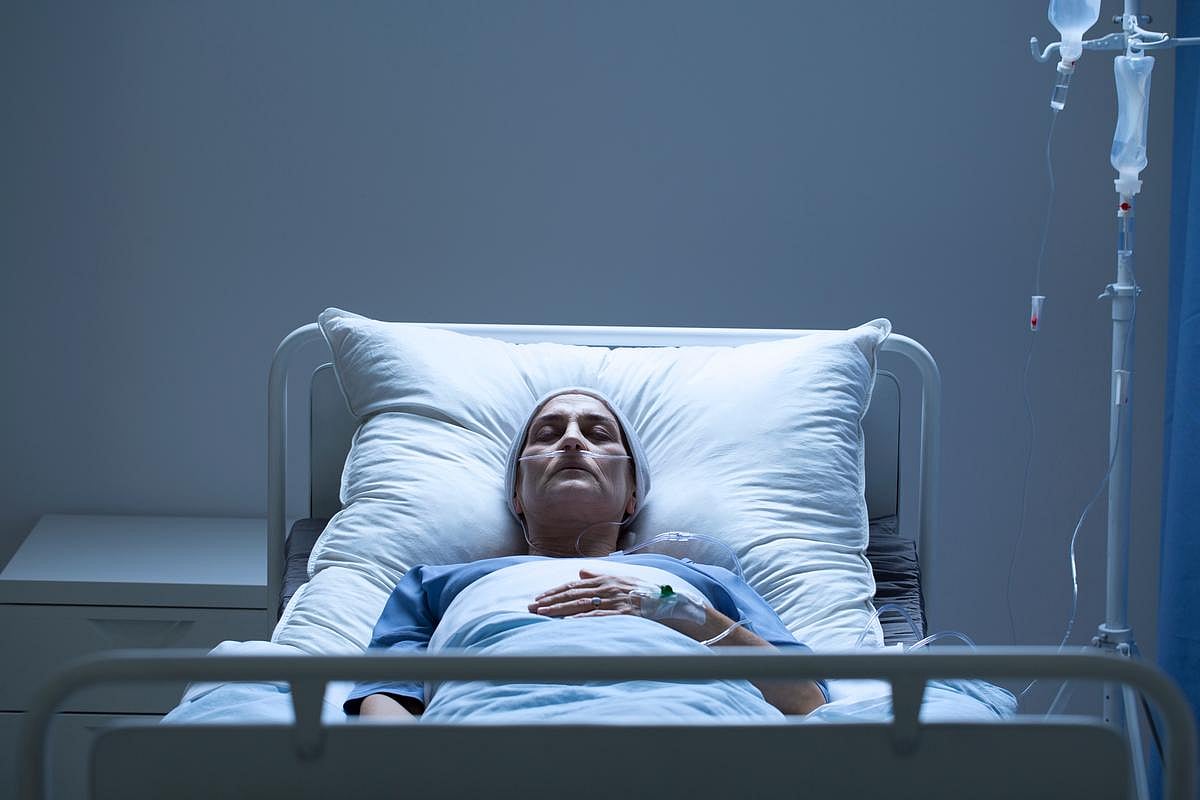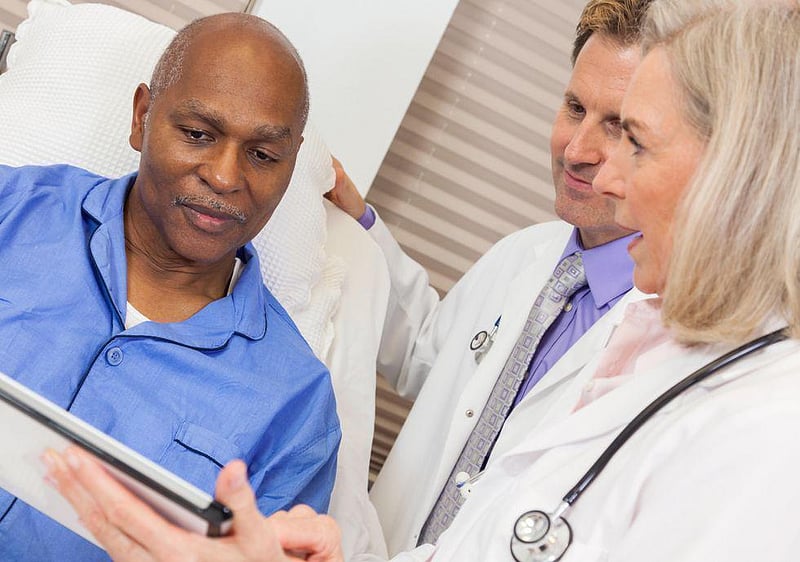Get Healthy!
Results for search "Cancer: Cervical".
07 Jan
New Cervical Cancer Screening Guidelines Give Women More Options
A major update expands guidelines on how women should get screened for cervical cancer — and requires most insurers to cover the full process.
15 Aug
HPV Cancer Awareness: Dangerously Low
A new survey finds only 1 in 3 adults in the U.S. have heard of the HPV virus that causes oral and cervical cancer… and even fewer know there's a preventive vaccine.
Health News Results - 53
At-home cervical cancer screening is meant to be a revolution in preventive care, by providing an easy option for women who’d rather not be poked and prodded at a doctor’s office.
But most women aren’t buying it, at least for now, a new study says.
About 3 out of 5 wo...
- Dennis Thompson HealthDay Reporter
- |
- February 10, 2026
- |
- Full Page
American women might need only two to three cervical cancer screenings their entire lives if HPV vaccination becomes more widespread, a new study says.
Women vaccinated against HPV between the ages of 12 to 24 likely need a Pap test about every 15 to 25 years, researchers estimate in the
- Dennis Thompson HealthDay Reporter
- |
- February 3, 2026
- |
- Full Page
Women may soon have an easier, lower-cost way to get screened for cervical cancer.
Federal health officials say self-collected vaginal samples can now be used to screen for cervical cancer, and most private insurance plans will be required to cover the testing without charging patients out o...
- I. Edwards HealthDay Reporter
- |
- January 6, 2026
- |
- Full Page
Routine cervical cancer screening is getting a new option: Self-swab HPV tests, according to updated guidance released Dec. 4 by the American Cancer Society (ACS).
Experts say offering a test that women can collect themselves — sans speculum exam — could make screening less stressful in general.
- I. Edwards HealthDay Reporter
- |
- December 5, 2025
- |
- Full Page
Women who overcome cervical cancer might have another potentially life-threatening health crisis on their horizon, researchers say.
Cervical cancer survivors have nearly double the risk of developing anal cancers compared to the general population, researchers reported Sept. 11 in
- Dennis Thompson HealthDay Reporter
- |
- September 12, 2025
- |
- Full Page
Women will flock to an HPV test they can perform at home in private, a new study indicates.
Cervical cancer screening more than doubled when women were offered a mail-in self-collection test for human papillomavirus (HPV), researchers reported June 6 in
Transmasculine and gender diverse people who use testosterone are not at an increased risk for cervical, ovarian or other gynecological cancers, a new study says.
The results show that hormone therapy can safely be used to induce physical changes more in line with a person’s gender ide...
- HealthDay Reporter
- Dennis Thompson
- |
- May 16, 2025
- |
- Full Page
Women now have a new way to check their risk for cervical cancer -- from the comfort of their own home.
The U.S. Food and Drug Administration (FDA) has approved the Teal Wand, an at-home test that screens for human papillomavirus (HPV), the virus tha...
- HealthDay Reporter
- I. Edwards
- |
- May 12, 2025
- |
- Full Page
Many Americans remain unaware of the cancer risk for both men and women posed by human papillomavirus (HPV), a new Ohio State University poll has found.
Most people don’t know much about HPV and its long-term cancer risks, and also have key misperceptions about how the virus is spre...
- HealthDay Reporter
- Dennis Thompson
- |
- March 4, 2025
- |
- Full Page
A self-administered test can help empower women in identifying risks for cervical cancer.
A new study published Dec. 12 in the journal PLOS Medicine shows the self-test for human papillomavi...
- HealthDay Reporter
- Dennis Thompson
- |
- December 17, 2024
- |
- Full Page
In guidelines that may encourage more women to get screened for cervical cancer, a leading health task force has backed giving women over 30 the option to collect their own vaginal samples for testing.
Instead of needing to have a complete pelvic exam, these women can now go to a doctor’s office and collect their own tissue to be tested for human papillomavirus (HPV), the infection...
- HealthDay Reporter
- Robin Foster
- |
- December 10, 2024
- |
- Full Page
“An ounce of prevention is worth a pound of cure,” founding father Benjamin Franklin once said.
That’s definitely true of cancer, a new study has found.
Cancer prevention and screening has saved more people from five types of cancer during the past 45 years than advances in tr...
- HealthDay Reporter
- Dennis Thompson
- |
- December 5, 2024
- |
- Full Page
A new study provides good evidence that the human papillomavirus (HPV) vaccine may be achieving its goal of slashing rates of cervical cancer.
“We observed a … 62% drop in cervical cancer deaths over the last decade, likely due to HPV vaccination,” said study senior author Ashish Deshmukh...
- HealthDay Reporter
- Ernie Mundell
- |
- December 2, 2024
- |
- Full Page
In some good news for women battling locally advanced cervical cancer, new research shows that adding six weeks of chemotherapy to standard treatment cuts the risk of death by 40 percent.
“This is the biggest improvement in outcome in this disease in over 20 years,” lead investigator Dr. M...
- HealthDay Reporter
- Robin Foster
- |
- October 17, 2024
- |
- Full Page
A new urine test might help doctors more easily screen for cervical cancer, researchers report.
The test looks for proteins generated by a type of cancer-causing human papillomavirus, HPV 16.
HPV strains 16 and 18 are responsible for nearly all...
- HealthDay Reporter
- Dennis Thompson
- |
- July 9, 2024
- |
- Full Page
HPV testing to prevent cervical cancer might not have to happen as often as currently recommended, a new study says.
Current standards require women to undergo human papillomavirus (HPV) screening every five years. Nearly all cervical cancers are caused by HPV...
- HealthDay Reporter
- Dennis Thompson
- |
- May 22, 2024
- |
- Full Page
The U.S. Food and Drug Administration has approved a kit that will allow women to collect their own vaginal sample for HPV screening, a move that could increase early detection in those at risk for cervical cancer.
Women will be able to swab themselves in privacy at a doctor's office, clinic...
- HealthDay Reporter
- Dennis Thompson
- |
- May 15, 2024
- |
- Full Page
Getting the HPV shot in adolescence can spare kids a lifetime of risk for cervical and other cancers related to the virus, but only half of American kids are up-to-date on these shots.
Now, a new review suggests that if schools mandate HPV shots as an entry requirement for students, immunization rates rise.
"A majority of studies evaluating HPV vaccine school-entry requirements fou...
- HealthDay Reporter
- Ernie Mundell
- |
- May 1, 2024
- |
- Full Page
Women who undergo regular Pap smears are no doubt familiar with the possibility of "precancerous" cells being detected.
These cells -- called cervical intraepithelial neoplasias (CINs) -- can progress to full-blown cervical cancers, but a new trial suggests that a vaginal suppository containing th...
- HealthDay Reporter
- Ernie Mundell
- |
- April 12, 2024
- |
- Full Page
In a letter sent to teaching hospitals and medical schools across the country, the U.S. Department of Health and Human Services said Monday that written consent must be obtained from patients before performing sensitive procedures such as pelvis and prostate exams.
The agency noted that it "is aware of media reports, as well as medical and scientific literature, highlighting instances whe...
- HealthDay Reporter
- Robin Foster
- |
- April 1, 2024
- |
- Full Page
Women are four times more likely to die from heart disease and six times more likely to die from stroke if infected with a high-risk strain of human papillomavirus (HPV), a new study warns.
HPV already is known to cause most cervical cancers, and previous research has suggested that HPV infection might contribute to clogged arteries.
But this is the first study to draw a link betwee...
- HealthDay Reporter
- Dennis Thompson
- |
- February 7, 2024
- |
- Full Page
Women in poorer areas of the United States have experienced a dramatic increase in advanced cervical cancer, a new study shows.
Late-stage cervical cancer cases and deaths have gone up in U.S. counties with an average household income of between $19,330 and $38,820, researchers report Jan. 25 in the International Jour...
- HealthDay Reporter
- Dennis Thompson
- |
- January 26, 2024
- |
- Full Page
The best way to prevent cervical cancer in women is to give HPV vaccines to both boys and girls, a new study argues.
That way, herd immunity could help eradicate the cancer-causing virus, researchers say.
Cancer-related HPV strains declined significantly in Finnish towns where boys and girls both received the vaccine, according to findings published Nov. 8 in the journal
- HealthDay Reporter
- Dennis Thompson
- |
- November 9, 2023
- |
- Full Page
Cervical cancer is a diagnosis no woman wants to receive, and navigating the disease can be challenging.
A type of cancer that starts in the cells of the cervix, this cancer usually develops slowly. The cervix is the lower, narrow end of the uterus that connects to the vagina. Before cancer appears in the cervix, the cells of the cervix go through changes known as dysplasia, which happens...
- HealthDay Reporter
- Angeles Alvarez Secord, MD, Gynecologic Oncologist, Duke Cancer Center/Duke University Hospital
- |
- October 9, 2023
- |
- Full Page
A new test detects a type of cervical cancer often missed by a standard Pap test, providing an important advance in detection.
The test was developed by scientists at Montefiore Einstein Cancer Center in New York City.
"Our novel test appears sensitive for detecting cervical adenocarcinoma [ADC] -- which now accounts for up to 25% of cervical cancer cases -- as well as its precursor...
- HealthDay Reporter
- Cara Murez
- |
- September 7, 2023
- |
- Full Page
Health screenings and preventive care appointments are a key to maintaining long-term health and well-being. By proactively engaging in these practices, women can identify potential health risks early on and take necessary steps.
This guide will outline the key women's health screenings and care appointments to help you prioritize your health and stay on top of your well-being.
- HealthDay Reporter
- Ann Schreiber
- |
- May 19, 2023
- |
- Full Page
The sexually transmitted human papillomavirus (HPV) can cause a range of cancers, but public awareness of this grim fact is slipping in the United States, a new survey finds.
While nearly 78% of respondents knew that HPV could cause cervical cancer in 2014, that dropped to about 70% in 2020, the investigators found.
The common virus can also cause oral, anal, vaginal, vulva and peni...
- HealthDay Reporter
- Cara Murez
- |
- April 17, 2023
- |
- Full Page
Women with mental illness have a risk for cervical cancer that's twice as high as that for others, according to new research.
Swedish researchers noted that women with mental illness, neuropsychiatric disability or substance abuse were also less likely to get screening tests that can detect cervical cancer.
"Our results suggest that women with these diagnoses participate more seldom...
- HealthDay Reporter
- Cara Murez
- |
- March 24, 2023
- |
- Full Page
A new study shows that many women diagnosed with and dying from cervical cancer are older than 65 -- a group for whom routine screening is usually not recommended.
Cervical cancer screening has been credited with a sharp drop in deaths from the disease in the decades since it was introduced in the United States. But current guidelines state that once a woman reaches 65, if she has been re...
- HealthDay Reporter
- Amy Norton
- |
- January 16, 2023
- |
- Full Page
Cancer deaths continue to decline, dropping 33% since 1991 and saving an estimated 3.8 million lives, according to the American Cancer Society's annual statistics report.
But individual trends within that overall success story highlight the struggle to find the best ways to prevent, detect and treat cancer for all Americans, the society said.
On the positive side, the United States ...
- HealthDay Reporter
- Dennis Thompson
- |
- January 12, 2023
- |
- Full Page
Cervical cancer is preventable, but people often feel uncomfortable talking about it because of its link to the sexually transmitted human papillomavirus (HPV).
Don't be embarrassed, a cancer expert advises.
Not only does your doctor want to help you, but the virus is incredibly common, affecting most American adults, according to
Young cancer survivors face a heightened risk from human papillomavirus (HPV), a virus known to raise the risk of cervical cancer. So why are they getting the HPV vaccine in low numbers?
To find out, researchers analyzed data from a clinical trial of the HPV vaccine among cancer survivors who were ages 9 to 26 and were one to five years from the completion of their cancer treatment.
<...- HealthDay Reporter
- Cara Murez
- |
- December 29, 2022
- |
- Full Page
Researchers warn that high rates of cervical cancer screening in women over 65 suggest that some older Americans are being unnecessarily screened.
More health data on these screenings in older women is needed to prevent potential harm and unnecessary costs, said the team from University of Illinois Chicago (UIC), University of California, San Francisco (UCSF) and the U.S. Centers for Dise...
- HealthDay Reporter
- Cara Murez
- |
- November 30, 2022
- |
- Full Page
When a man has cancer in an area that affects sexual function, his doctor is likely to discuss it with him.
But the same is not true for a woman who has cancer in a sex organ, according to new research. Investigators found 9 in 10 men were asked about their sexual health, yet only 1 in 10 women received the same care.
"There seems to be a big disparity in the way we approach sexual...
- HealthDay Reporter
- Cara Murez
- |
- October 25, 2022
- |
- Full Page
Back in 2006, doctors began recommending the first vaccine for the common sexually transmitted human papillomavirus (HPV), with the shots carrying the potential to lower the risk of certain cancers.
Now, a new study shows the vaccine has been wi...
- HealthDay Reporter
- Cara Murez
- |
- August 22, 2022
- |
- Full Page
New research points to a conundrum with cervical cancer: While rates of early-stage disease have been dropping in the United States ever since the human papillomavirus (HPV) vaccine was introduced, advanced cases have been on the rise.
Which women are being hit the hardest? The steepest uptick in advanced cer...
- HealthDay Reporter
- Denise Mann
- |
- August 19, 2022
- |
- Full Page
Most sexually active people will contract the human papillomavirus (HPV) during their lifetimes, and about 90% will clear it from their bodies. But some women are susceptible to the cervical lesions that infection brings, raising their risk for cervical cancer.
Now, a new review finds it's possible that during surge...
- HealthDay Reporter
- Cara Murez
- |
- August 5, 2022
- |
- Full Page
It's important to talk to kids about family health risks, but the impact of sharing this kind of information has been unclear.
It's probably safe, according to a new study, but how are you supposed to do it -- and when?
Researchers found that kids generally have no problem coping when cancer risk information is shared with them. But it's not uncommon for parents to struggle with com...
- HealthDay Reporter
- Ellie Quinlan Houghtaling
- |
- July 22, 2022
- |
- Full Page
Millions of U.S. women missed breast, cervical and colon cancer screenings due to the COVID-19 pandemic, according to a new study.
It found that compared to 2018, the number of women in 2020 who said they had breast cancer screening in the past year fell by 2.13 million (6%). The number of women who ...
- HealthDay Reporter
- Robert Preidt
- |
- June 3, 2022
- |
- Full Page
Vaccination against the virus that causes most cervical cancers has spurred a widespread reduction of infections among young Americans - including those who are unvaccinated, a new government study finds.
The study, by the U.S. Centers for Disease Control and Prevention, looked at the impact of the nation's HPV...
- HealthDay Reporter
- Amy Norton
- |
- May 17, 2022
- |
- Full Page
A single dose of human papillomavirus (HPV) vaccine provides as much protection against cervical cancer as the standard three-dose regimen, a new study finds.
"These findings are a game-changer that may substantially reduce the incidence of HPV-attributable cervical cancer, and positions single-dose HPV vaccination as a high-value and high-impact public health intervention that is within ...
- HealthDay Reporter
- Robert Preidt
- |
- April 12, 2022
- |
- Full Page
A COVID-19 diagnosis can lead to potentially life-threatening treatment delays for women with gynecological cancers, a new study finds. That's especially true for non-white patients, the researchers said.
"We found that concurrent COVID-19 had significant negative effects on these cancer patients, especially among those who identified as Black or Asian," said study leader Dr. Gretchen Gla...
- HealthDay Reporter
- |
- March 21, 2022
- |
- Full Page
Gender differences extend to cancer treatments, with women having a higher risk of severe side effects from certain treatments than men, a new study finds.
Previous research concluded women tend to have more side effects from chemotherapy, and this new paper shows the same is true for
Pap tests have long been used to detect cervical cancer early, but preliminary research suggests that cervical cells collected during those tests could also be used to catch other cancers, including deadly ovarian tumors.
Researchers found that by analyzing a particular molecular "signature" in cervical...
- HealthDay Reporter
- Amy Norton
- |
- February 2, 2022
- |
- Full Page
Many American teens and young adults underestimate the risk of sexually transmitted infections from unprotected oral sex, and that's especially true of young men, a new survey shows.
Doctors say oral sex can transmit herpes, gonorrhea, chlamydia, syphilis, HIV and human papillomavirus (HPV), which can lead to cervical cancer, and head and neck cancers.
While there is an
A new report offers hope on the lung cancer front: Patients are being diagnosed at an earlier stage in their disease and living longer due to better access to care, higher screening rates and improved treatments.
And that is driving overall cancer rates down, researchers discovered.
Still, lung cancer remai...
- HealthDay Reporter
- Robert Preidt
- |
- January 12, 2022
- |
- Full Page
Cervical cancer is the only gynecologic cancer that can be prevented, yet there were more than 4,000 deaths in the United States in 2021 and nearly 14,500 new cases, the American Cancer Society says.
The best way to prevent this is to make sure you and your children get their human papillomavirus vaccines, experts noted.
Nearly all cervical cancer stems from HPV, which will first c...
- HealthDay Reporter
- |
- January 8, 2022
- |
- Full Page
The first wave of girls to receive the HPV vaccine are much less likely to contract or die from cervical cancer than women just a few years older, a new study reports.
Nearly all cases of cervical cancer are caused by human papillomavirus (HPV), for which a vaccine has been available since 2006.
Cervical cancer deaths and cases have fallen dramatically among 14- to 24-year-old women...
- HealthDay Reporter
- Dennis Thompson
- |
- November 30, 2021
- |
- Full Page
Women getting vaccinated against the cancer-causing human papillomavirus (HPV) now need two or three shots, but an African clinical trial suggests a single dose is just as effective.
The finding could speed up the immunization process in developing countries with high levels of HPV-related cancers and protect many more women more quickly.
"These findings are a gamechanger that may s...
- HealthDay Reporter
- |
- November 26, 2021
- |
- Full Page
When young people are allowed to give their own consent for human papillomavirus (HPV) vaccines, vaccination rates are higher, new research shows.
The new study suggests that allowing teens to consent without parental involvement could be an important strategy for boosting HPV vaccination rates. This consent is already a policy in several U.S. states.
While researchers can't say def...
- HealthDay Reporter
- Cara Murez
- |
- November 17, 2021
- |
- Full Page


